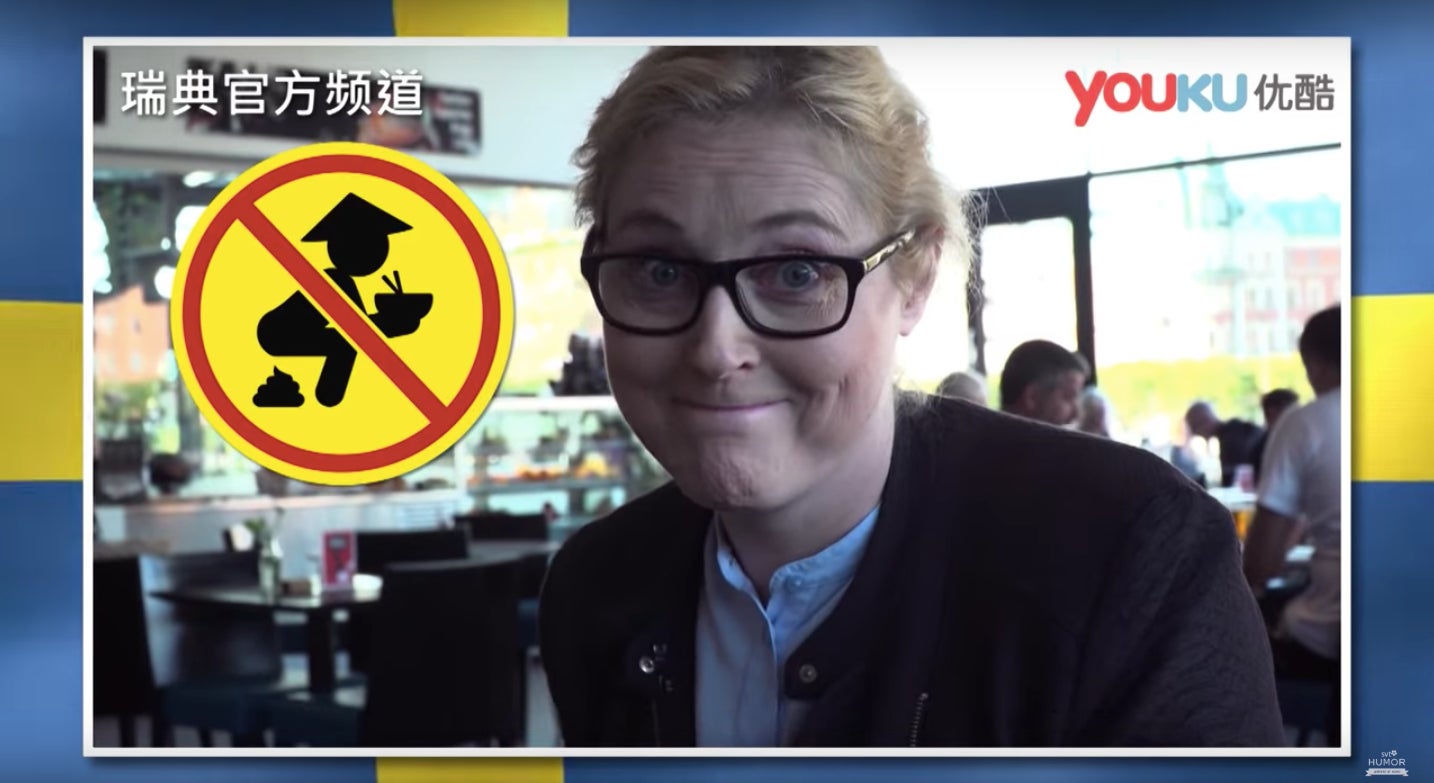A racist skit by Swedish TV is only adding fuel to the China-Sweden diplomatic fire
In 1950, Sweden became the first Western country to establish official diplomatic relations with China, and the first Swedish ambassador was received by then-Communist Party chairman Mao Zedong himself. This year, however, will be better remembered for a series of diplomatic incidents that have soured relations between the two nations.


In 1950, Sweden became the first Western country to establish official diplomatic relations with China, and the first Swedish ambassador was received by then-Communist Party chairman Mao Zedong himself. This year, however, will be better remembered for a series of diplomatic incidents that have soured relations between the two nations.
In the latest controversy, Chinese authorities accused a Swedish television show of racism after it made fun of footage that showed a Chinese family in distress. The family had been evicted from a hostel lobby in Sweden for checking in too early and were removed by the police, but China called it “brutal mistreatment.” Opinions have been mixed on Chinese social media—while some offer sympathy, others called the family’s reaction dramatic and embarrassing.
“Swedish News,” a comedy program on SVT, the largest TV network in the country, satirized the incident last week in a sketch that mocked the Chinese family’s reaction to being escorted out of the hostel, and pokes fun at the Chinese language. The episode then goes on to instruct Chinese people on how to avoid “cultural clashes” with Swedes. This instruction included a sign saying that defecating outside tourist spots is prohibited (the figure in the sign was holding chopsticks), and emphasizing that dogs were not for eating.
Thomas Hall, SVT entertainment chief, said in a statement that the comedy and satire is apparent if the audience understands Swedish, the Guardian reported. However, in a later comment to CNN, SVT said they were “truly sorry” at how insulting the video actually was, and that it was a backfired attempt to highlight Sinophobia.
A Chinese ministry spokesman, Geng Shuang, called the program “a gross insult to, and vicious attack on, China and the Chinese people.” A travel warning was later issued to nationals traveling to Sweden, warning of daily crimes against Chinese people.
This dispute, however, is predated by a more serious diplomatic incident that occurred earlier this year. In January, Gui Minhai, a Hong Kong-based book publisher with Swedish citizenship, was seized from a train in China in front of the two Swedish diplomats accompanying him. Gui was one of five Hong Hong booksellers who mysteriously vanished in 2015, and later resurfaced in detention in China.
Chinese state media then accused Sweden of orchestrating the kidnapping in a sensationalized, movie-style plot. Gui later said in a taped statement that he was pressured by Sweden to leave China, but some say that it was yet another forced confession arranged by Chinese authorities. Gui remains in Chinese custody.
The diplomatic quarrels of September get even more complicated considering that the week before the hotel footage went viral, the Chinese embassy released a statement saying that China had been accused of interfering in the Swedish election (held on Sept. 9). “This fictitious claim that these people made up and tried to hype up is based entirely on speculation and out of hidden agenda, without any factual support,” the embassy wrote. As Björn Jerdén and Viking Bohman, both from the Swedish Institute of International Affairs, point out in a recent piece in the South China Morning Post, this denial is especially puzzling considering there was no discussion in Sweden about Chinese interference.
There’s more. On Sept. 13—shortly after the incident with the Chinese family went viral—the Dalai Lama, who China views as a separatist, visited the city of Malmö, no doubt adding fuel to the fire.
It’s not clear where China-Sweden relations go from here, but, as Jerdén and Bohman suggest, a quarrel between the world’s most populous nation and a small European country “might tell us a great deal about what is to come in Europe-China relations.”